"The 5th Executive Forum for Enhancing Sustainability of Urban Water Service in Asian Region" was held in Yokohama.
Day:2023.08.25
event |

Event: The 5th Executive Forum for Enhancing Sustainability of Urban Water Service in Asian Region
Date: 22 (Tue) - 25 (Fri) August 2023 *Site visit to Japanese companies (Kubota Corporation and Yokogawa Solution Service Corporation) was conducted on 24 August.
Venue: Yokohama Symposia
A total of 495 people over three days (excluding the day for the site visit), including 28 executives from water utilities and responsible ministries in 10 Southeast and South Asian countries (Cambodia, Indonesia, Laos, the Philippines, Thailand, Vietnam, Bangladesh, Nepal, Pakistan and Sri Lanka).
The 5th Executive Forum for Enhancing Sustainability of Urban Water Service in Asian Region (hereinafter referred to as "Forum") was held in Yokohama from 22 to 25 August 2023 under the main theme “Co-creating Resilient and Sustainable Water Supply Service from Asia”. The Forum aimed to discuss, share and co-create knowledge, best practices and lessons learned among top management of Asian water utilities and senior government officials to realize resilient and sustainable water supply service together, and to expand networking among participants.
The Water Resources Group of the Global Environment Department of JICA regularly holds "Executive Forum" in Asia and Africa as one of platform activities for leaders of water utilities in developing countries to learn from each other with the same perspective, transcending national boundaries and positions. The first Executive Forum was held in Asian region in 2010, and this is the 5th time it has been held.
The Forum opened with opening remarks by Ms. Tomoko Okubo, the Deputy Mayor of City of Yokohama, and Mr. Eiji Iwasaki, Vice President of JICA.
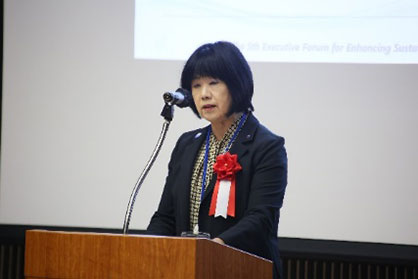
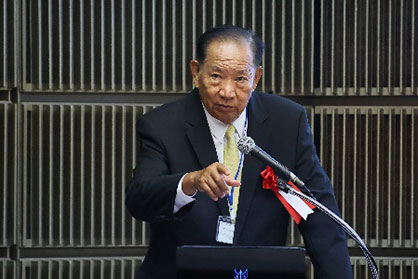
Next, as a keynote speech, H.E. Ek Sonn Chan, Minister Attached to the Prime Minister of Kingdom of Cambodia and Vice-Chairman of Council for Agriculture and Rural Development (Former Director General of the Phnom Penh Water Supply Authority), spoke about the importance of leadership in achieving SDGs Goal 6 (Safe Water and Sanitation) in the context of changes such as infectious diseases, climate change and geopolitical challenges, as well as the need to "take action" to achieve the goal. The importance of governance and management of water utilities was emphasized by explaining the achievements of the reforms known as the “Miracle of Phnom Penh” and the ripple effects on rural Cambodia.
Next, Global Environment Department of JICA presented 1) The results of the Executive Forum in Africa and Third Country Training and case studies that led to action, 2) Expectations for participants to learn together as a “Water Family” with shared goals to realize strong and sustainable water services, and 3) The development stages of water utilities, which is the development scenario of JICA’s cluster strategy “Supporting the Growth of Water Utilities”. The main message was that each participant is expected to learn according to their own stage of development, and that participants at more advanced stages are expected to share their knowledge and experiences with those at subsequent stages.
This was followed by Session 1: “Towards water utilities resilient to risk and change”, which consisted of 6 presentations and group discussions on issues such as the impact of climate change on water sources (e.g., saltwater intrusion, drought), measures against COVID-19 and other infectious diseases and disaster management. It was confirmed as a common understanding that preparedness, including the formulation of plans that take into account short-, medium- and long-term measures, is necessary, and that setting appropriate water tariffs is important because funds are needed to deal with risks, while timely revisions are a difficult task.
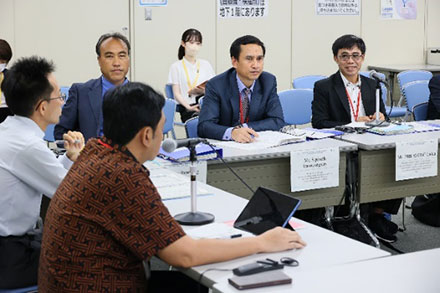
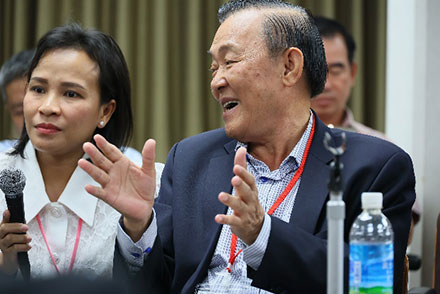
On the second day, Session 2, “Towards achieving SDGs Goal 6”, consisted of a total of 9 presentations and group discussions, divided into Part 1: “Improvement of services, improvement of communication with customers, tariff revision” and Part 2: “Fundraising”. Importance of the cost recovery in water services and difficulty of revising tariffs, need for a medium- to long-term master plan including water resource policies, importance of reducing Non-Revenue Water, and consideration of private sector participation for financing were discussed, and above all, it was identified importance of improving management of water utilities, which will form the basis for financing the achievement of SDGs Goal 6.
On the third day, two groups visited to Kubota Corporation and Yokogawa Solution Service Corporation respectively. Many participants expressed their admiration for the high-quality technology and products of Japanese companies, providing an opportunity to deepen their understanding of quality infrastructure once again.
On the fourth day, Session 3 “Collaboration and Co-Creation” included 5 presentations and group discussions were conducted, which confirmed the importance of partnerships, including cooperation between domestic water utilities, with the private sector and with other countries.
At the final summary session, each country presented its action plan on how they would like to utilize the learning and insights gained through the Forum in their own water services. Afterwards, Professor Satoshi Takizawa of the University of Tokyo, who chaired the Forum, gave an impassioned message to the participants: “’Knowing what to do’ is different from ‘doing what to do’, and I hope you will not be afraid to be bold and do what you need to do to achieve SDG Goal 6!”.
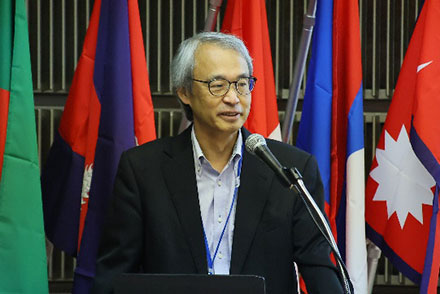
The four days of heated discussions came to a close with closing remarks from Mr. Shuichi Yamaoka, Director General of the Yokohama Waterworks Bureau, and Mr. Takahiro Morita, Director General of the Global Environment Department of JICA.
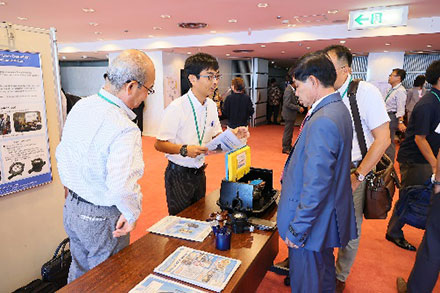
During the forum, presentations by 5 companies and panel displays by 9 companies were held with the cooperation of the Yokohama Waterworks Bureau and the Yokohama Water Business Association, and many participants actively asked questions and discussed specific issues with the companies.
Throughout the Forum, many executives commented on the common challenges they face despite the different background of their countries and their willingness to work together to find solutions and improve water supply services through sharing successes and lessons learnt.
JICA will continue to support the realization of resilient and sustainable water supply services co-created from Asia through follow-up activities such as online meeting to share the implementation status of the action plans of each country.
scroll